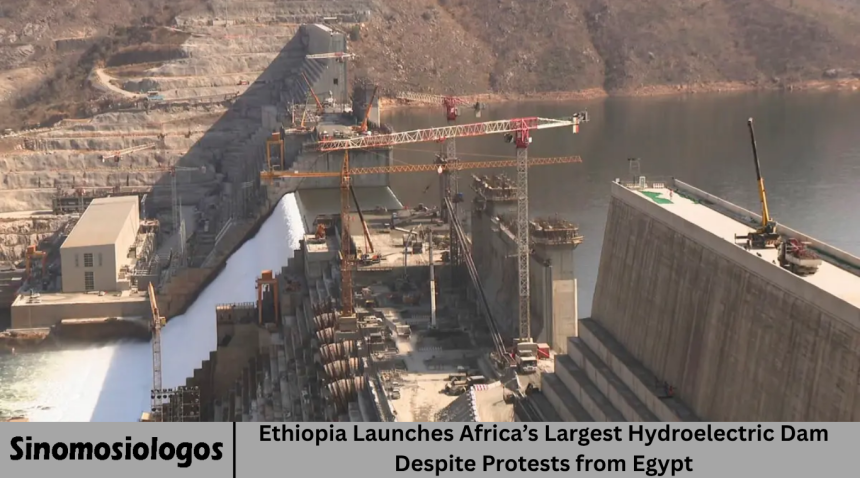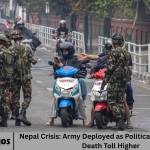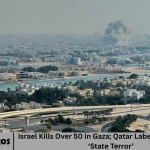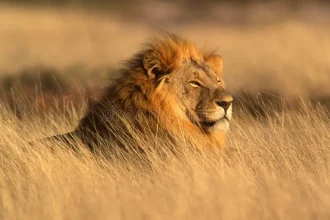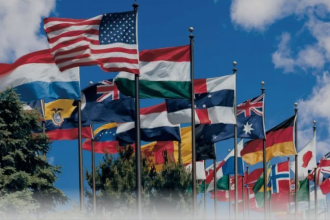Ethiopia has officially launched Africa’s largest hydroelectric dam, the Grand Ethiopian Renaissance Dam (GERD), a major milestone in the region’s development. This project is set to transform Ethiopia’s energy production, providing electricity to millions of people and boosting the economy.
However, the launch has sparked strong protests and concerns from neighboring Egypt, which fears the dam will reduce its share of Nile River water. This article explains the background of the dam, the reasons for Egypt’s protests, the impact on the region, and the ongoing dispute between the two countries.
What is the Grand Ethiopian Renaissance Dam?
The Grand Ethiopian Renaissance Dam, or GERD, is a massive hydroelectric power plant built on the Blue Nile River in Ethiopia. Once fully operational, it will be Africa’s largest dam and one of the biggest hydroelectric power plants in the world. The dam’s main purpose is to generate electricity to help meet Ethiopia’s growing energy needs and support development goals.
The project started over a decade ago and has involved complex engineering and significant investment. The dam’s reservoir can hold billions of cubic meters of water, which will be used to generate power through turbines. Ethiopia expects the dam to supply electricity domestically and export surplus power to neighboring countries.
Ethiopia’s Perspective on the Dam
For Ethiopia, the GERD is a symbol of national pride and progress. It represents an opportunity to reduce energy poverty, improve living standards, and boost economic growth. The dam is also seen as a key step toward regional integration, as Ethiopia plans to share electricity with countries in East Africa.
Ethiopian officials argue that the dam will not harm downstream countries because they will manage water releases carefully during the filling of the reservoir and in future operations. They believe the dam will help regulate the flow of the Nile, reducing floods and droughts, which have historically affected the region.
Egypt’s Concerns and Protests
Egypt, a country heavily dependent on the Nile for its water supply, has expressed strong opposition to the dam. The Nile provides over 90% of Egypt’s freshwater, vital for drinking, agriculture, and industry. Egypt fears that the GERD will reduce the flow of water downstream, threatening its water security and economy.
Egyptian leaders have protested loudly, calling the dam a threat to national survival. They worry about the speed at which Ethiopia fills the reservoir because a rapid fill could dramatically reduce water flow in the Nile for several years. Egypt has sought international support to pressure Ethiopia to agree on rules for filling and operating the dam.
Sudan’s Role in the Dispute
Sudan, which lies between Ethiopia and Egypt, has a mixed view of the dam. On one hand, Sudan supports the project because it could provide electricity and help regulate the Blue Nile’s flow, reducing flooding. On the other hand, Sudan has concerns about water safety, dam operation, and the lack of a fully agreed legal framework between the three countries.
Sudanese officials have called for more technical cooperation and negotiations to address the shared risks and benefits. Sudan is in a delicate position, trying to balance relations with both neighbors.
Regional and International Efforts to Resolve the Dispute
The dispute over the GERD has involved several rounds of talks mediated by the African Union and international actors. The main goal has been to reach an agreement on how Ethiopia should fill the dam’s reservoir and how all parties should manage the Nile’s water fairly.
Despite many meetings, the countries have not yet signed a final, binding agreement. Negotiations have been difficult due to mistrust, differing priorities, and domestic political pressures. The international community continues to call for peaceful dialogue to avoid escalation.
Impact on the Nile River and Environment
The Nile River is one of the world’s longest rivers and is crucial for millions of people across several countries. The GERD will affect the river’s flow, especially during the initial filling of the reservoir.
Experts warn that the timing and volume of water Ethiopia releases will be critical to avoid harm downstream. Changes in flow could impact agriculture, fisheries, and ecosystems in Sudan and Egypt. Proper management and data sharing between countries are essential to minimize environmental risks.
Economic Benefits for Ethiopia
The dam is expected to boost Ethiopia’s economy significantly. Access to reliable electricity can power industries, businesses, schools, and hospitals. It can also attract foreign investment and help reduce reliance on fossil fuels.
By exporting electricity to neighboring countries like Sudan, Kenya, and Djibouti, Ethiopia aims to increase regional cooperation and generate revenue. The project is seen as a driver for modernization and poverty reduction.
Egypt’s Water Security Challenges
Egypt faces growing water scarcity due to population growth, climate change, and increasing demand for agriculture and industry. The Nile remains the country’s lifeline, and any reduction in flow poses serious risks.
Egypt’s protests against the dam reflect fears about future water shortages and food security. The country has invested in water conservation and alternative sources but remains highly vulnerable.
Possible Outcomes and Future Scenarios
The GERD dispute could have several outcomes. Ideally, the countries reach a comprehensive agreement that balances Ethiopia’s development goals with Egypt and Sudan’s water needs. This would involve clear rules for reservoir filling, dam operation, and conflict resolution.
If negotiations fail, tensions could escalate, risking diplomatic conflict or worse. Both Ethiopia and Egypt have shown willingness to avoid war, but mistrust remains a barrier.
Continued international mediation and technical cooperation are critical to achieving a peaceful solution that benefits all parties.
Lessons for Regional Cooperation
The GERD conflict highlights the importance of cooperative management of shared natural resources. Rivers like the Nile connect multiple countries, and unilateral actions can lead to disputes.
Building trust, transparency, and joint planning are key to sustainable development. The GERD case offers lessons for other regions facing similar challenges of shared water resources and development needs.
Frequently Asked Questions
What is the Grand Ethiopian Renaissance Dam?
The GERD is a large hydroelectric dam on the Blue Nile River in Ethiopia. It aims to generate electricity to support Ethiopia’s development and supply power to neighboring countries.
Why is Egypt opposed to the dam?
Egypt relies heavily on the Nile for its water needs and fears that the dam will reduce the river’s flow, threatening water security and agriculture.
How does Sudan view the dam?
Sudan supports the dam’s potential benefits but is concerned about water safety and calls for agreements on dam operation and cooperation.
What efforts are being made to resolve the dispute?
The African Union and other international actors are mediating talks among Ethiopia, Egypt, and Sudan to reach agreements on reservoir filling and dam management.
What are the environmental concerns related to the dam?
Changes in the Nile’s flow could affect agriculture, fisheries, and ecosystems in downstream countries, so careful water management is needed.
How will the dam benefit Ethiopia economically?
The dam will provide electricity for domestic use and export, supporting industrial growth, reducing energy poverty, and generating revenue.
Could the dispute lead to conflict?
While tensions are high, all countries have expressed a preference for peaceful dialogue. Continued negotiations and mediation are essential to avoid conflict.
Conclusion
Ethiopia’s launch of Africa’s largest hydroelectric dam marks a historic achievement but also deepens tensions with Egypt, which fears impacts on its vital Nile water supply. While the dam promises economic and energy benefits for Ethiopia and parts of the region, it raises serious concerns for downstream countries.
Resolving this dispute requires ongoing dialogue, mutual understanding, and international support. Balancing development with shared water security is a challenge that demands cooperation and goodwill. The future of the Nile Basin depends on the ability of Ethiopia, Egypt, and Sudan to find common ground.


